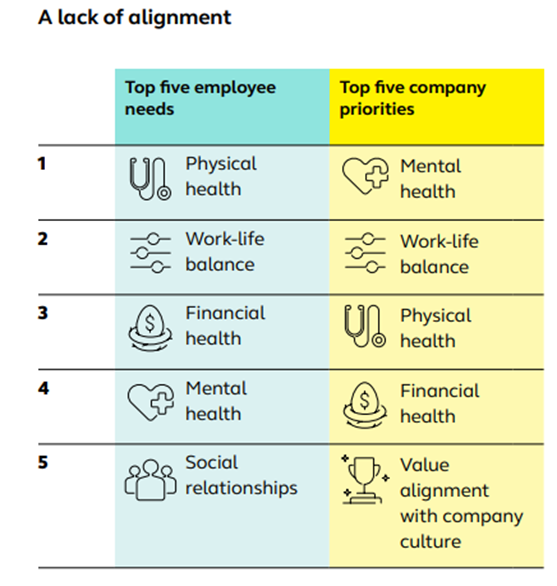
It is not surprising to most that workplace benefits are fundamental for not only attracting but also engaging and retaining employees.
And while workforce benefits and monetary recognition play an important role in employee retention, there is something else that organisations should pay attention to the social aspect.
Alight’s benefits study showed that to differentiate from competitors, companies should change their approach to benefits with human-centric programmes. They should ask employees what benefits matter to them and tailor a plan accordingly.
Humans are social creatures. Many of us crave connections and recognition from others, the feeling of being valued and part of a network, a sense of belonging.
The study on European Benefits by Alight shows a lack of alignment between employees and employers in considering the social aspect. While social relationships are very much considered a top need by employees, they do not appear in companies’ top priorities.

Workplace benefits, from healthcare to discounted gym memberships, are very much relevant. However, not acknowledging the importance of the social side contributing to employee retention and wellbeing can lead to organisations losing talent.
This is in spite of comprehensive benefit programmes they may have in place.
The Workhuman® and Gallup research report supports this, with employees who lack meaningful connections at work are up to nine times more likely to be disengaged and up to three times as likely to be looking for a new job.
What comes into play here is the notion of social recognition.
Research has found that people who are thanked at work in the last month are:
- Half as likely to be looking for a new job
- More than twice as likely to be highly engaged
- More than three times as likely to see a path to grow in the organisation
How can organisations leverage this knowledge?
Start by fostering an organisational culture where recognition is ingrained in the workplace.
This is easier said than done, but a practical approach is to integrate this culture in a continuous performance management process within the organisation.
Having regular conversations with the manager in place can already help in building a feedback culture in organisations. Supported by the right technology, it also allows and encourages peer-to-peer recognition.
While employee recognition reinforces other desired behaviours, recognising others is a desired behaviour. So, bringing this idea to the next level, rating the behaviour of giving feedback and recognising others in the employee’s performance review could help foster this culture.
It can showcase where the priorities lie for the organisation, helping them pursue a common vision of the organisation’s future state.
The objective here is that, instead of treating recognition as an afterthought, it becomes natural to celebrate the achievements and contributions of employees, so they feel valued and seen.
Leveraging social recognition can reduce turnover, improve employee engagement and increase motivation and wellbeing. Companies can benefit from acknowledging the importance of the social side of work and set up a culture-based programme that allows for recognition within the organisation between managers and employees and among employees.


